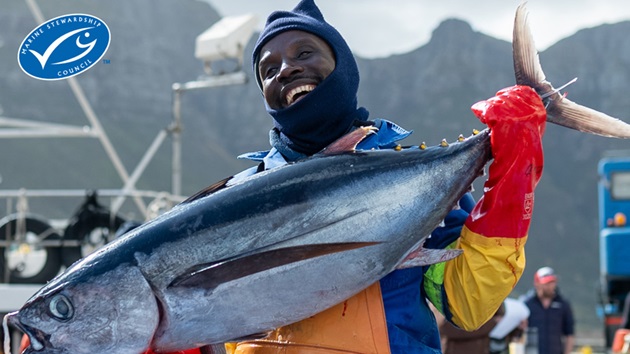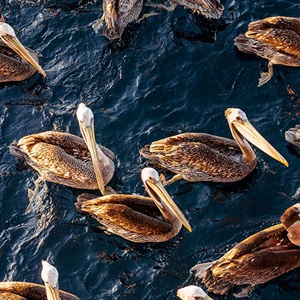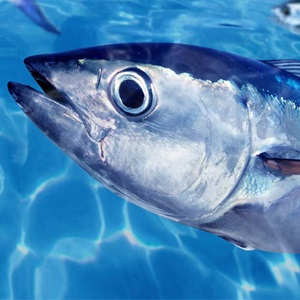A message from our CEO
"Sustainable fisheries provide the foundation for a resilient, healthy and productive ocean. With management, our oceans can continue to provide a precious and renewable source of low carbon, nutritious protein for humanity for generations to come. It is therefore encouraging to see the continued and deepening engagement of both fisheries and the market in the MSC program. We share the same vision.However, as the impacts of warming oceans become ever more apparent, it is vital that we all redouble our efforts to ensure global fisheries are managed on a sustainable basis. This will require action from all of us – the fishing industry, fishery management agencies, consumers and our political leaders and governments to set an enabling environment. Progress must accelerate if we are to see the delivery of the UN Agenda 2030 Goals by the end of this decade."
Rupert Howes, Chief Executive, Marine Stewardship Council
20.6% of all wild marine catch engaged with the MSC*
Progress on the water
MSC continues to enjoy strong market momentum, driven by the growing number of fisheries engaged in the program.
*Enaged= MSC certified, in assessment and in the MSC Improvement Program
738 fisheries
engaged* in the MSC program
63 countries
engaged in the MSC program
16.1 million tonnes
MSC engaged catch
Species engaged
Fisheries engaged in the MSC program target more than 200 different species.
79.8%
of the commercial whitefish catch is MSC engaged
59.2%
of the commercial tuna catch is MSC engaged
62.4%
of the commercial salmon catch is MSC engaged
Improvements by MSC certified fisheries over the last three years: 558
213
175
94
76
Delivering impact
The MSC Improvement Program
Launched in October 2024, the program builds on our five-year In Transition to MSC pilot. The Improvement Program offers support and incentives to fisheries committed to entering into full assessment within five years. 35 fisheries had entered the MSC Improvement Program by 31 March 2025.
The Ocean Stewardship Fund
Each year, we commit 5% of the royalties from sales of MSC labelled products to the Fund, complemented by donations funding from mission-aligned partners.
At the UN Ocean Conference in June 2025 MSC announced that we will channel US$6.5m in funding to the OSF by 2030.
- US$2.2 million awarded in 2024-25 supporting 85 fisheries and projects
- US$8.8 million awarded since inception
- 45% of grants awarded to fisheries and projects in developing economies
Pelican population research
An accurate estimate of the pelican population is critical to understand and mitigate the potential impacts of the Pacific sardine fishery, which is working towards MSC certification through our Improvement Program.
Brown pelicans often follow fishing vessels and risk getting caught in fishing gear when they dive. The research was supported through a donation to the OSF by Carrefour Italy and seafood brand Delicius as part of MSC Italy’s Sustainable Seafood Week, 2023.
Pathways to Sustainability
Our 14 Pathway projects bring together multiple partners – including fisheries, governments, scientists, NGOs and the supply chain – to make progress collectively in specific regions. Through assessment tools, capacity-building, research and market incentives, the projects help fisheries address common challenges and create momentum for change.
Pathway projects are active in the UK , Australia, France, Spain, Italy, Greece, Portugal, Mauritania, Senegal, The Gambia, Tonga, Palau, Samoa, Indonesia, Kenya, China and Canada.
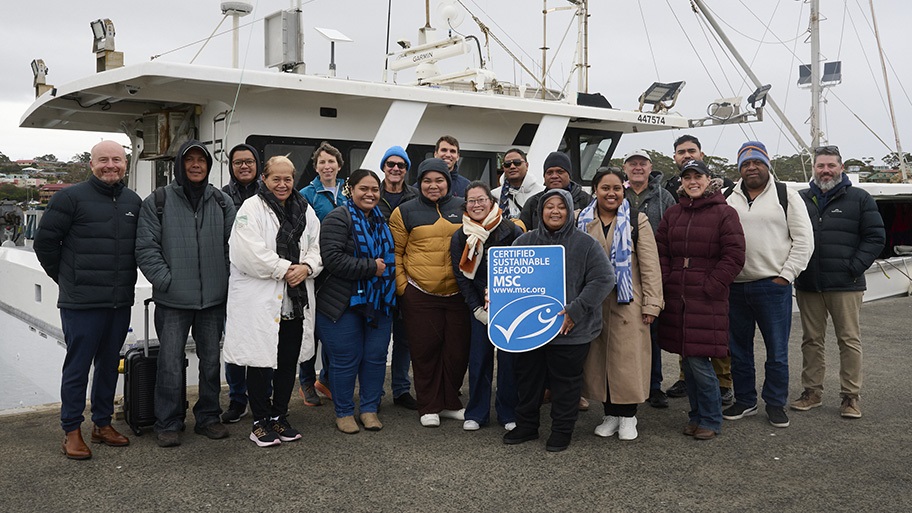
Pacific Island delegates from the UN FAO's Common Oceans Project © FAO
In the marketplace
Sales of MSC labelled products by volume increased 8% this year. Saithe sales almost doubled, while squid, sardine and salmon also saw strong growth.
Tuna remained the biggest driver of growth with over 300,000 tonnes of MSC labelled tuna sold – thanks partly to the introduction of more MSC labelled tuna products in Germany, Scandinavia, Poland, the UK, and the USA.
MSC labelled products available to consumers
MSC labelled products: volume sold by type 2024-25
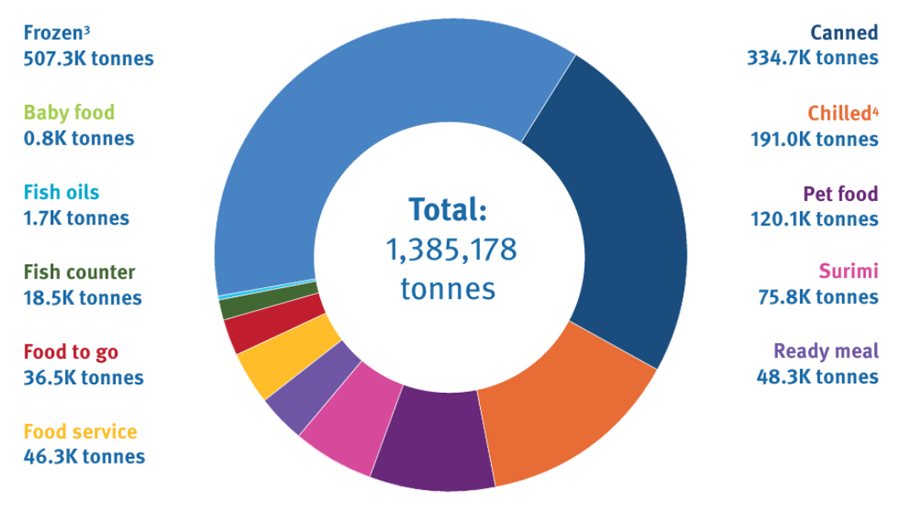
3. Frozen combines the categories of frozen plain and frozen prep.
4. Chilled combines the categories of chilled plain and chilled prep.

